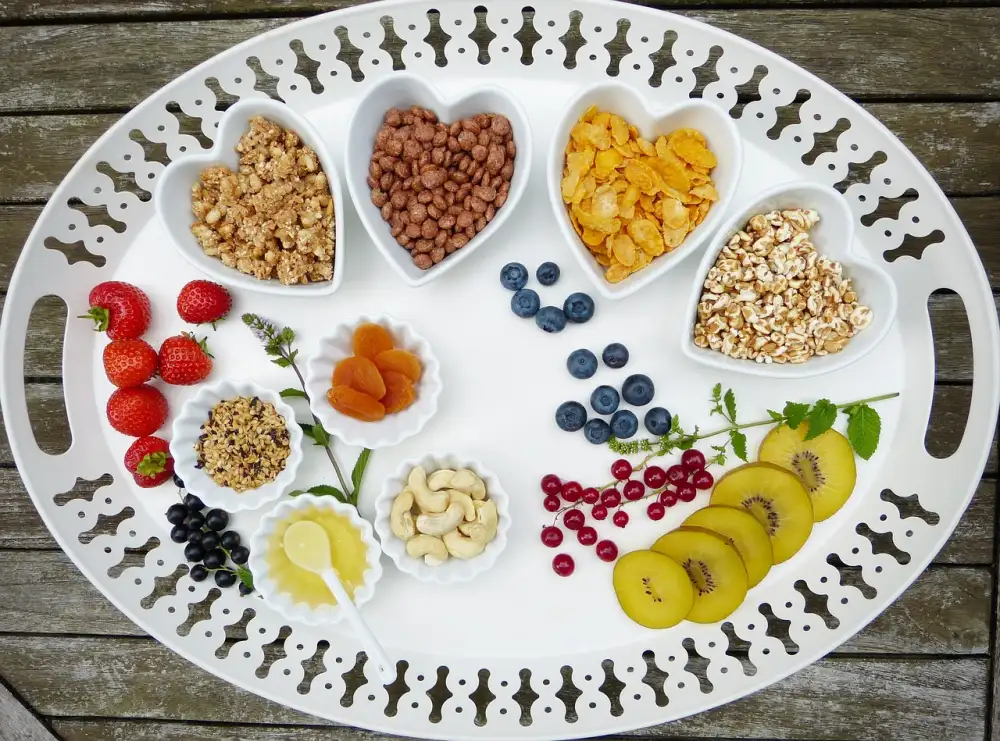Carb Count: Unveiling the Nutritional Powerhouse of Broccoli in Your Recipes

Broccoli, a cruciferous vegetable, is not only known for its vibrant green color and distinct flavor but also for its impressive nutritional profile. While many people associate carbohydrates with starchy foods like bread and pasta, it may come as a surprise that even vegetables contain carbohydrates. In this article, we will explore the carbohydrate content of broccoli and how it can be incorporated into your recipes to add both flavor and nutrition. So, let's dive into the world of broccoli's carbohydrate content and discover its hidden nutritional powerhouse!
Health Benefits of Broccoli
Broccoli is not only delicious but also packed with numerous health benefits. It is rich in vitamins, minerals, and antioxidants that promote overall well-being. Consuming broccoli regularly can boost your immune system, improve digestion, and support heart health. It also contains compounds that have been linked to reducing the risk of certain types of cancer. Additionally, broccoli is low in calories and high in fiber, making it a great choice for weight management. So, make sure to include this superfood in your diet to reap its amazing health benefits!
Understanding Carbohydrates
Carbohydrates are one of the three main macronutrients that our bodies need for energy. They are made up of sugar molecules and can be found in a variety of foods, including fruits, vegetables, grains, and dairy products. Carbohydrates provide our bodies with the fuel they need to function properly.
There are two types of carbohydrates: simple and complex. Simple carbohydrates, also known as sugars, are quickly digested and provide a quick source of energy. They can be found in foods like candy, soda, and processed snacks. On the other hand, complex carbohydrates take longer to digest and provide a more sustained release of energy. These can be found in foods like whole grains, legumes, and vegetables.
It's important to understand that not all carbohydrates are created equal. Some sources of carbohydrates, such as refined grains and sugary drinks, offer little to no nutritional value and can contribute to weight gain and other health issues when consumed in excess. On the other hand, nutrient-dense carbohydrates like those found in fruits and vegetables provide essential vitamins, minerals, fiber, and antioxidants that support overall health.
When it comes to incorporating carbohydrates into your diet, it's important to choose wisely. Opt for whole grains like quinoa or brown rice instead of white bread or pasta. Include a variety of fruits and vegetables in your meals to ensure you're getting a good mix of nutrients.
By understanding the different types of carbohydrates and making informed choices about what we eat, we can ensure that we're fueling our bodies with the right kind of energy for optimal health.
Carbohydrate Content in Broccoli
Broccoli is a nutritional powerhouse that is low in calories and high in essential nutrients. When it comes to carbohydrates, broccoli is a great choice for those looking to maintain a balanced diet. A 1-cup serving of cooked broccoli contains only 6 grams of carbohydrates, making it an excellent option for individuals who are watching their carb intake. This low carbohydrate content makes broccoli a suitable choice for those following low-carb diets or managing conditions such as diabetes. So, if you're looking to add some healthy carbs to your meals, broccoli is a delicious and nutritious option to consider.
Importance of Carbohydrates in a Balanced Diet
Carbohydrates play a crucial role in maintaining a balanced diet. They are the body's primary source of energy and provide fuel for daily activities. While low-carb diets have gained popularity, it is important to remember that carbohydrates are essential for overall health and well-being. They support brain function, aid in digestion, and help regulate blood sugar levels. Incorporating healthy sources of carbohydrates, such as broccoli, into our meals ensures we receive the necessary nutrients for optimal physical and mental performance.
Incorporating Broccoli into Low-Carb Recipes
Broccoli is not only low in carbohydrates but also versatile, making it a perfect addition to low-carb recipes. Here are a few ideas on how to incorporate this nutritional powerhouse into your meals while keeping the carb count in check:
1. Roasted Broccoli: Toss broccoli florets with olive oil, garlic, and a sprinkle of salt and pepper. Roast them in the oven until they are tender and slightly crispy. This simple yet delicious side dish pairs well with grilled chicken or fish.
2. Broccoli Salad: Create a refreshing salad by combining blanched broccoli florets with cherry tomatoes, cucumbers, red onions, and a light vinaigrette dressing. Add some grilled shrimp or tofu for an extra protein boost.
3. Broccoli Stir-Fry: Sauté broccoli florets with other low-carb vegetables like bell peppers, mushrooms, and snap peas. Season with soy sauce or your favorite stir-fry sauce for a quick and healthy meal option.
4. Broccoli Soup: Blend steamed broccoli with vegetable broth, garlic, and herbs to create a creamy and nutritious soup. Top it off with some grated cheese or toasted almonds for added flavor and texture.
Remember to experiment with different seasonings and ingredients to keep your low-carb broccoli recipes exciting and flavorful. By incorporating this nutrient-packed vegetable into your meals, you can enjoy its health benefits while maintaining a balanced diet.
In conclusion, broccoli is not only a delicious and versatile vegetable, but it also packs a powerful nutritional punch. With its low carbohydrate content and high fiber content, it is an excellent addition to any balanced diet. The health benefits of broccoli are numerous, from boosting immunity to promoting heart health and aiding in digestion. By incorporating broccoli into your low-carb recipes, you can enjoy all these benefits while still maintaining a healthy lifestyle. So go ahead and delight your senses with the culinary artistry of broccoli and reap the rewards of its nutritional powerhouse.
Published: 18. 11. 2023
Category: Recipes



